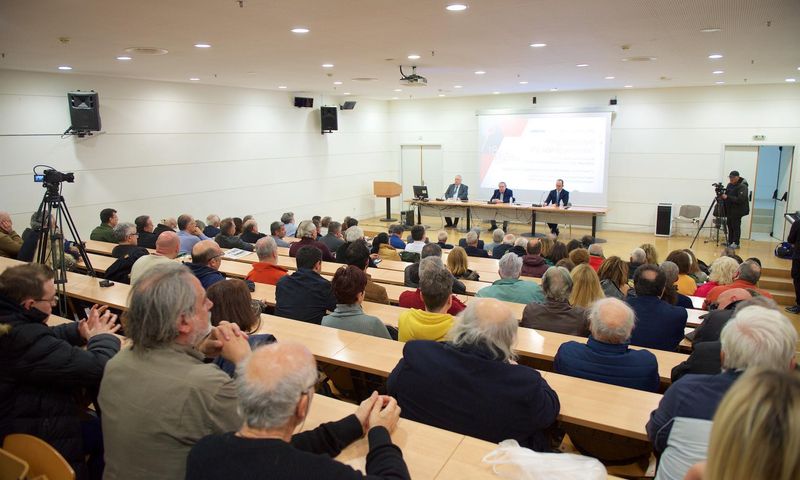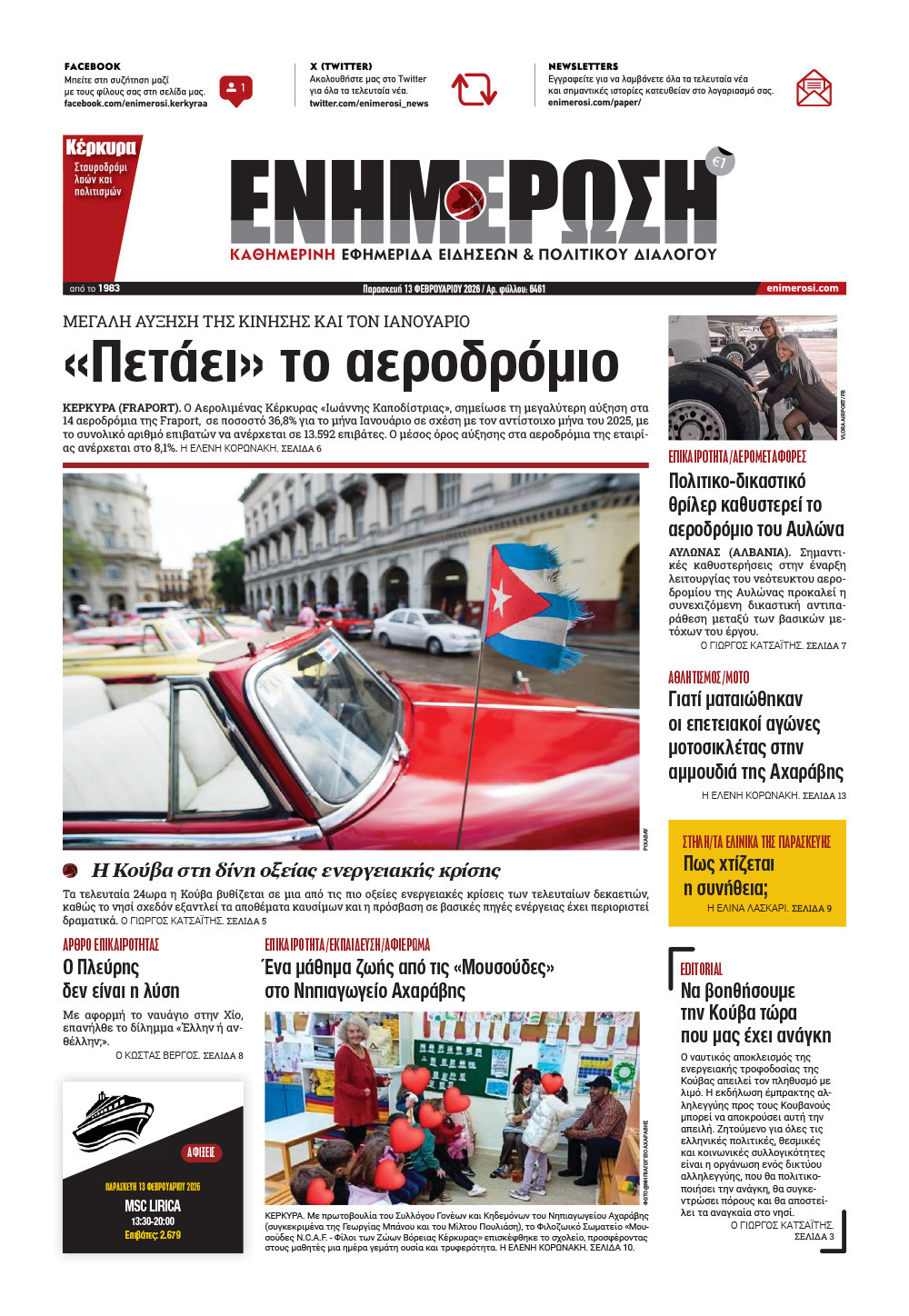The power of diversity is the Balkans΄ advantage
 From last Saturday΄s meeting at the Ionian University, as part of the events organised by Enimerosi for the newspaper΄s 40th anniversary / Photo: Enimerosi
From last Saturday΄s meeting at the Ionian University, as part of the events organised by Enimerosi for the newspaper΄s 40th anniversary / Photo: Enimerosi
Ditmir Bushati
21 Mar 2023
/ 21:57
CORFU. Two former Foreign Ministers met at the Ionian University with the aim to provide a good example for the development of bilateral and international relations.
The first speaker was Mr. Ditmir Bushati, who was Foreign Minister of Albania until 2019, and he started his speech by thanking Enimerosi and the Ionian University for the hospitality, while he continued by revealing that his most important acquisition from Greece is the name of his daughter (Hera).
Nikos Kotzias spoke next and referred to the depth of his thinking and the strength of his beliefs. In his speech, he chose to talk about three issues, starting with the different situation that the war in Ukraine has created both in relations with Russia and in internal relations in the EU and NATO. He argued that we are in a period where moves are being made to contain Russia (he mentioned Sweden and Finland's willingness to join NATO).
He then referred to the changes that the war has brought about in the international order, as it has caused global consequences. He believes that preserving the territorial integrity of Ukraine will be a victory in a battle. But in order to win the war, a more "aligned" global policy will be needed.
He also stressed the need for his country to look towards the Mediterranean countries, as there are the most opportunities for development and he did not fail to present the major problems of the area. The demographic problem, the economic gap and the decline of the rule of law need reforms in order to achieve the countries' entry into the EU.
Mr. Kotzias' speech
After thanking Mr. Bushati, Mr. Kotzias, who was the Foreign Minister of Greece until 2018, highlighted the diversity of the Balkans both racially and religiously. He underlined that the developed irredentisms were a consequence of the emergence of nation-states and the attempt of the new states to define themselves.
He stressed Greece's missed opportunities for upgrading its regional role both in 1989 and with the recent economic crisis and talked about the restart of Albania's integration processes while strengthening relations with Greece.
He reminded that multiculturalism had brought Europe to the first place when it came to international politics and stated that "diversity is an asset".
He then referred to the role that Greece should play, as a mediator, a guarantee for stability and power that resorts to dialogue to resolve disputes. He wondered why the country is not more active in training foreign institutional representatives or in protecting neighbouring states, giving the example of North Macedonia's airspace. All this on the basis of establishing positive relations with the Balkan states.
He concluded by saying that Greece should have a strategic and consequent position to defend the international law, legitimacy, democracy, understanding and good neighbourly relations and to promote the assistance of the neighbouring countries' integration to the EU and the development of cooperation networks (universities, football teams, etc.).
Nikos Kotzias spoke next and referred to the depth of his thinking and the strength of his beliefs. In his speech, he chose to talk about three issues, starting with the different situation that the war in Ukraine has created both in relations with Russia and in internal relations in the EU and NATO. He argued that we are in a period where moves are being made to contain Russia (he mentioned Sweden and Finland's willingness to join NATO).
He then referred to the changes that the war has brought about in the international order, as it has caused global consequences. He believes that preserving the territorial integrity of Ukraine will be a victory in a battle. But in order to win the war, a more "aligned" global policy will be needed.
He also stressed the need for his country to look towards the Mediterranean countries, as there are the most opportunities for development and he did not fail to present the major problems of the area. The demographic problem, the economic gap and the decline of the rule of law need reforms in order to achieve the countries' entry into the EU.
Mr. Kotzias' speech
After thanking Mr. Bushati, Mr. Kotzias, who was the Foreign Minister of Greece until 2018, highlighted the diversity of the Balkans both racially and religiously. He underlined that the developed irredentisms were a consequence of the emergence of nation-states and the attempt of the new states to define themselves.
He stressed Greece's missed opportunities for upgrading its regional role both in 1989 and with the recent economic crisis and talked about the restart of Albania's integration processes while strengthening relations with Greece.
He reminded that multiculturalism had brought Europe to the first place when it came to international politics and stated that "diversity is an asset".
He then referred to the role that Greece should play, as a mediator, a guarantee for stability and power that resorts to dialogue to resolve disputes. He wondered why the country is not more active in training foreign institutional representatives or in protecting neighbouring states, giving the example of North Macedonia's airspace. All this on the basis of establishing positive relations with the Balkan states.
He concluded by saying that Greece should have a strategic and consequent position to defend the international law, legitimacy, democracy, understanding and good neighbourly relations and to promote the assistance of the neighbouring countries' integration to the EU and the development of cooperation networks (universities, football teams, etc.).












